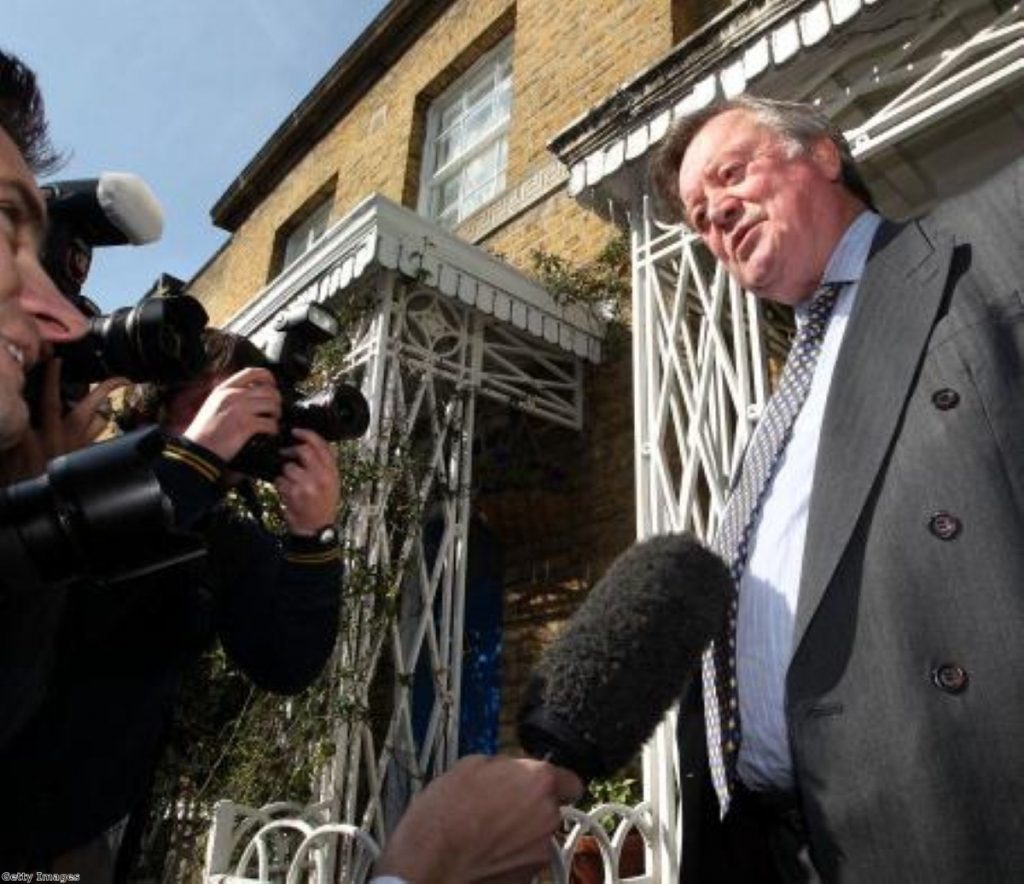Clarke launches war with eurosceptic Tories
Ken Clarke sparked a new battle with his eurosceptic colleagues today when he ridiculed them for believing "European bogeys are under the bed".
The justice secretary, who has been arguing against eurosceptics for the duration of his 42-year parliamentary career, hit out at those calling for a referendum on Britain's membership of the EU in the wake of the eurocrisis.
"The idea that because we've having a rough old time, that you turn to a total irrelevance, a referendum on our membership of the European Union, where you create turmoil on a great subject, you throw absolute confusion over our continued involvement in the European Union – I cannot think of anything sillier to do," he told the Today programme.
"It would settle nothing. Particularly it would settle nothing with the more frenzied eurosceptics who keep believing that European bogeys are under the bed every time we get into any problem.


"The idea that [voters] are all demanding a referendum on the European Union would be regarded as ridiculous. It would be out of sight as a public demand, a public priority. It's a demand of a few rightwing journalists and a few extreme nationalist politicians."
Mr Clarke, who first became a minister in Edward Heath's government in 1972, admitted the Tories would lose an election if it was held now but insisted there was enough time to recover before the 2015 poll.
"I have seen, mid-term, much greater turmoil than this," he said.
"I've been in governments having much more trouble than this. I'm amazed that the government is retaining the support it is."
He added: "There's not a government in western Europe which could win an election at the moment.
"Strong governments have to do unpopular thing. I think it's a credit to the public, actually. They realise we have to do unpopular things."
The justice secretary confirmed plans to water down his 'secret justice' proposal, which would have allowed closed inquests to be heard in private where national security matters are concerned.
The Liberal Democrats claim they have scored a significant victory by preventing security and intelligence agency material only being heard in secret.
But the partial U-turn showed early signs of being a compromise which pleased no-one.
Civil liberties groups pointed out that evidence from intelligence and security agencies will be presented to court but not the individuals seeking damages or making a complaint, meaning they would be unable to challenge it.
Security-vetted 'special advocates' would instead represent their interests.
"No country in the world allows them to give evidence in court; you'd have terrorists in the public gallery, lining up making notes," Mr Clarke said.
Mr Clarke, whose strong connections to civil liberties groups have been severely tested during the row, said the proposal would subject security agencies behaviour to judicial scrutiny. Currently, they often settle cases because of the risk of sensitive information reaching the public domain.
"I would like to know, like to see, the intelligence agencies clear their reputation and win a case," he said.
"As a member of the public, I would like to know what the judge's opinion is. He's heard the plaintiff, and he's heard the intelligence services explanation.
"And I'd quite like a court, a judge, in a civil action, to listen to what the argument for the defence is."









